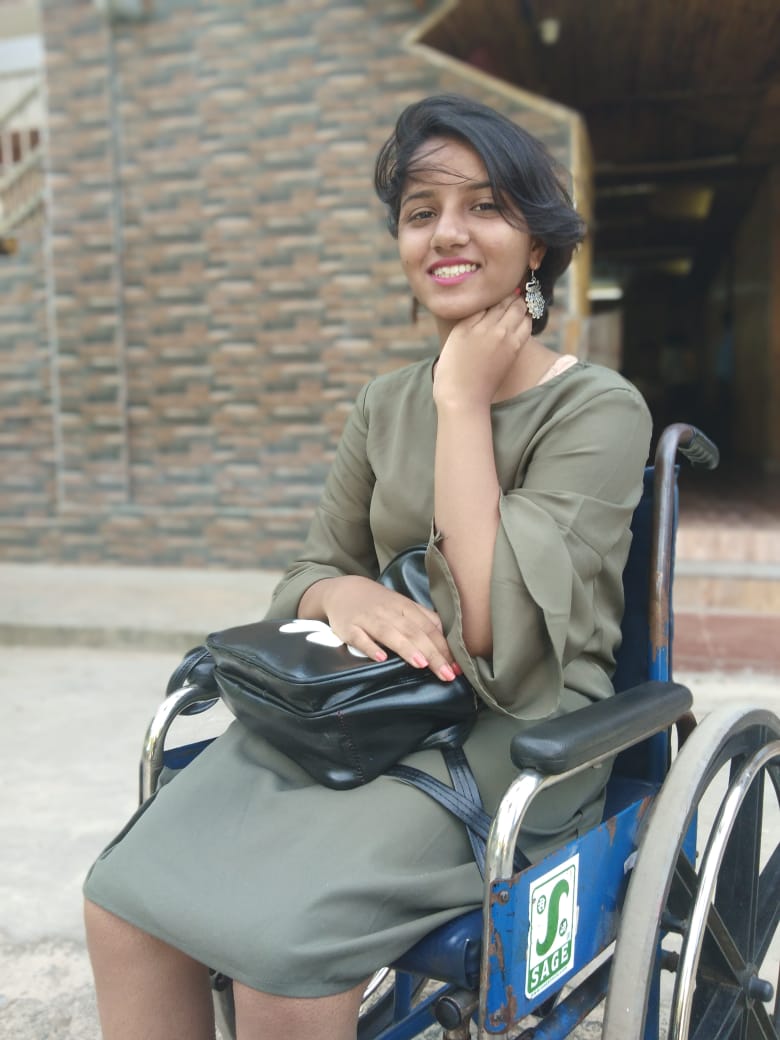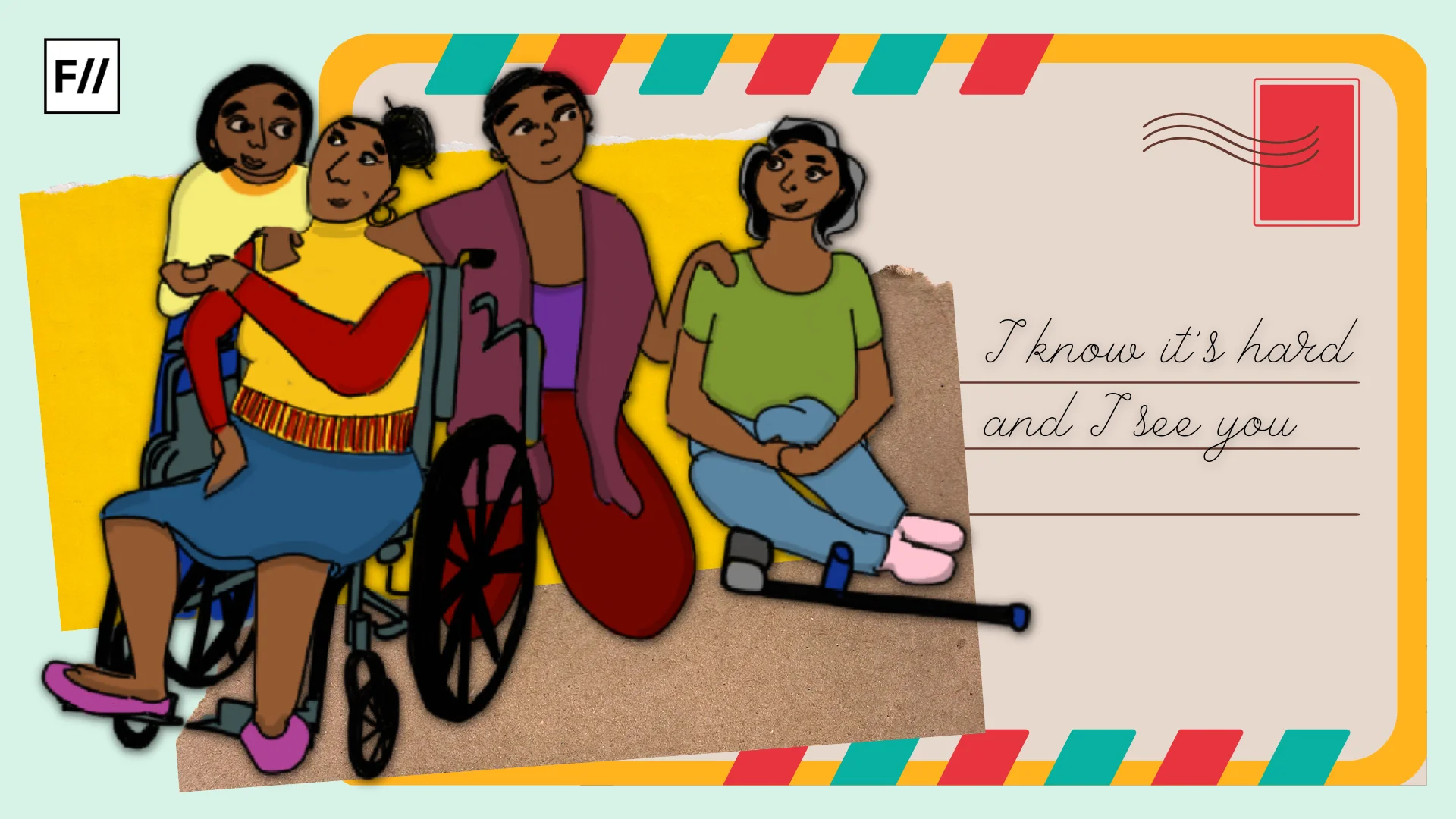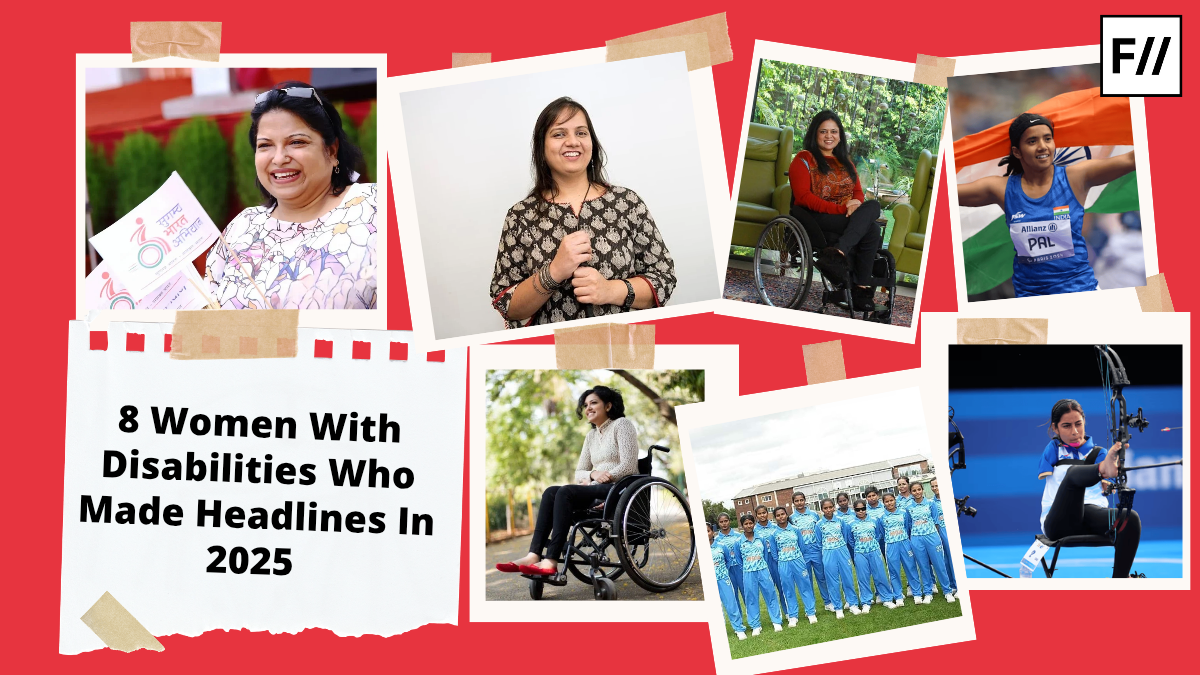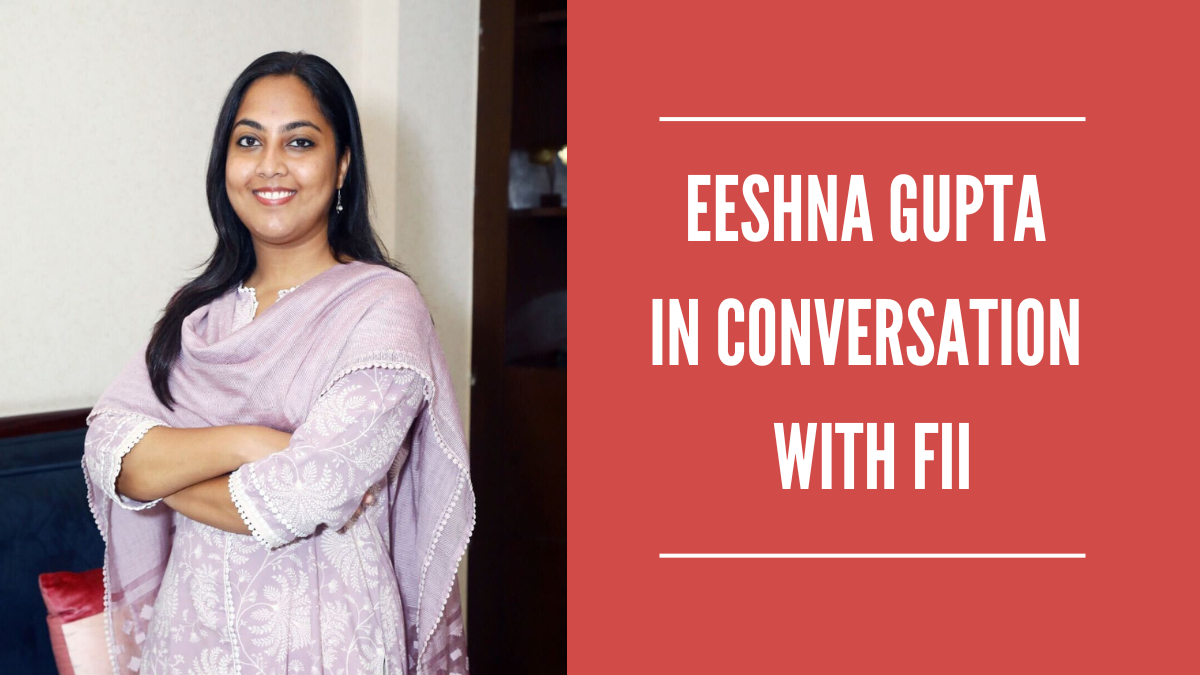“We cannot direct the wind but we can adjust the sails.” We all would have heard this quote and perhaps used it too. But there are a lot of people around us who have to adjust the sails more than others and every new day is filled with new challenges for them. Srishti Pandey, a student at Lady Shree Ram College For Women and a disability rights activist talks about the dual challenges she faces because she is disabled and she is a girl. In this in-depth interview, Srishti talks about her daily struggles, the stereotype she faces and how she manages to keep shining still. She lost her ability to walk when she was 3, because of a cyst and from then till now, she is bravely fighting the world, the stereotypes and emerging stronger while believing in the line, “ Zindagi Ek Khel Hai, Bas Isse Khelte Jana Hai!”

In this in-depth interview, Srishti talks about her daily struggles, the stereotype she faces and how she manages to keep shining still.
What does feminism mean to you?
Srishti Pandey: In very simple words, feminism means providing equal opportunities and access to resources to everyone. People usually associate feminism with women trying to overpower men, when in reality, it is totally the opposite! It is not about one gender being superior and one being inferior. It is about every gender being treated as equal.
How does feminism intersects with your disability? Do you feel things would have been different had you been a boy?
Srishti Pandey: Being a woman with a disability, I often have to face double prejudices. I think certain aspects would have been different had I been a guy.
How accessible was your school and how accessible is LSR? How understanding and supportive your friends have been?
Srishti Pandey: In terms of infrastructure, my school was not accessible at all but the staff had made certain arrangements for me which were helpful. The teachers were pretty supportive. However, I feel I could not experience half the things, my other “non disabled” friends could.
If you’re talking about my close friends, they definitely understand or try and learn about my (and other) disabilities. They know what my needs are and are pretty supportive. However, if you talk about people in general or even people who aren’t very close to me, their understanding of disability is very limited. For instance, when I talk about accessibility of a venue, all that comes to their minds is a lift or a ramp.
Also read: Meet Dr. Aiswarya Rao: A Doctor And A Disability Rights Activist
Accessibility is lot more that. It depends on the type of disability an individual has. Also, many a times ramps are built for the sake of it and they are uneven and serve no purpose. People think it is manageable if they have just one or two steps but in reality we know how it feels to be picked up like a baggage. The need of the time is to make people, of all ages, more aware about the various kinds of disability and sensitize them.
Also, many a times ramps are built for the sake of it and they are uneven and serve no purpose. People think it is manageable if they have just one or two steps but in reality we know how it feels to be picked up like a baggage.
It is still a dream for most of the women to access public spaces at night. Reflecting on this, how do you think nights can be made safe for disabled people?
SP: Going out at night is still not very easy for women and being a disabled woman, the struggle multiplies. We can step out only if the place is accessible. Most of the places are not accessible and I have to search a lot before even thinking about going out. Making public spaces safe is necessary but they are not at all accessible in the first place. It becomes very difficult to navigate through them alone. If I go somewhere, and the roads are not even, my wheelchair would not move ahead and I will have to depend on some stranger which is not a good idea and it is risky too. So, thinking of all these would automatically prevent me from going out. Although, a lot can be done to make the nights safer but first we all should come out of the shell of the various stereotypes and then other things can be discussed.
Talking about the stereotypes, what do you have to face? How supportive your family has been?
SP: There are a lot of stereotypes. The most common is people think that disability and smartness do not go hand in hand and that is not true. People think that I am incapable and my parents and I have to face a lot of these kinds of stereotypes. While I was writing my boards, a teacher asked my mom to buy me a PCO as he did not think I can go anywhere else with my career ahead. A lot of people told my parents to enroll me in a correspondence course rather than sending me to a regular college. But, I am fighting them all and I am managing them well.
Talking about my family, I must say that, they have been extremely supportive. They have made me very strong and independent. My brother and I were treated in the same way. Obviously, my needs are different and they were catered but I was not given any special attention or extra pampering just because I am disabled and that has made me very strong emotionally.There have been a lot of cases, when people tend to over pamper their disabled kids but it makes them more dependent, which I believe, is not good.
Do you remember any incident of harassment? How did you fight back?
SP: Yeah! While in school, when the assembly was going on. I was sitting alone in my class as my school was not accessible. A sweeper tried to take advantage of the situation and tried to molest me but I complained and they suspended him. Anything could have taken place that day. My parents were the one who encouraged me to fight back, always. We all should stand up for others and develop more empathy so that those who are not courageous enough, get the strength to fight against these things.
Also read: Travelling With Club Foot: Negotiations With My Disability
Again, there was another incident. A staff was asked by the school authority to help me reach my car everyday. He was a sweet and responsible man, but the comments the other guys made scared me. They told him “You have got such a nice job to do!” These kinds of comments are so scary, it shows that anything bad can possibly happen to me. The world is a scary place, so we should always support others and stand up for ourselves, always.
Sakshi Priya has completed her graduation from LSR, Delhi University. She’s a feminist and politically liberal and is mostly introverted except on social media. Also, she likes learning more and more about people and their life. And, she runs on caffeine. You can find her on Facebook, Instagram and Twitter.
All pictures have been provided by the author herself.





It was same with me